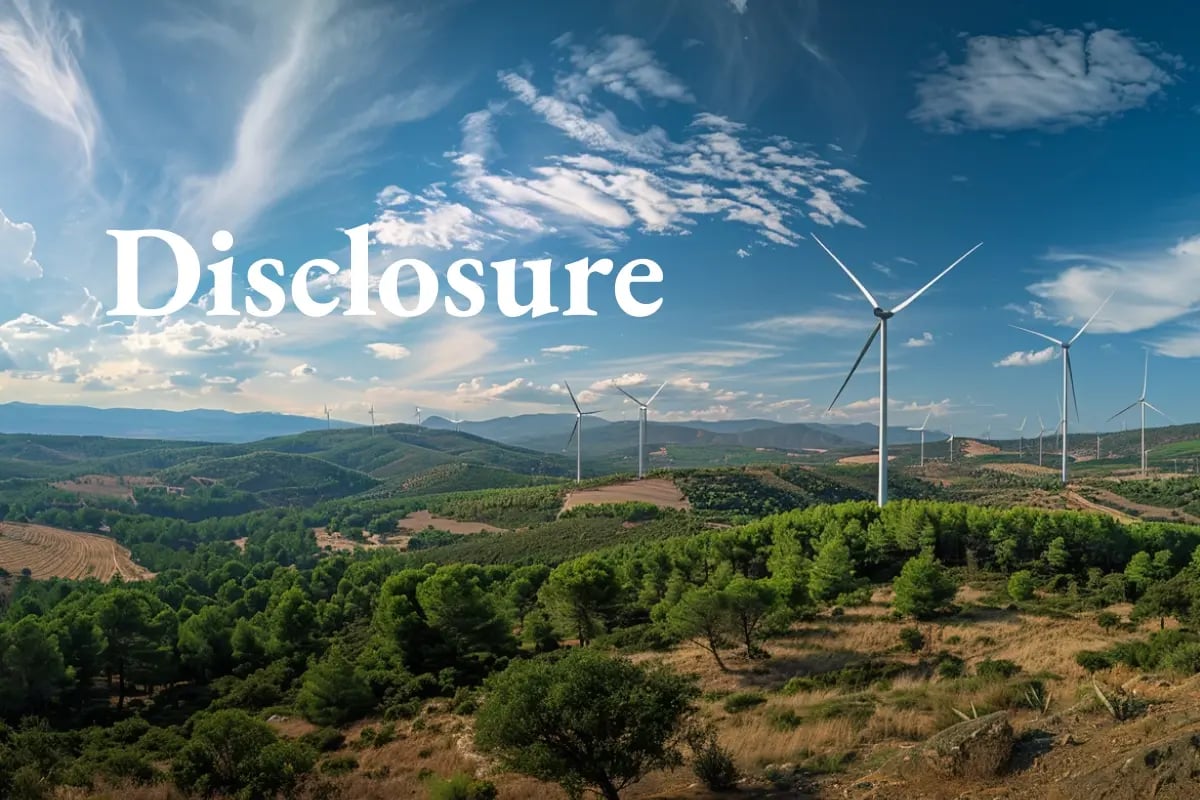Beginning in 2026, companies operating in Spain will be required to disclose their Scope 1 and Scope 2 emissions, based on 2025 data. The new rule is the central feature of Spain’s just-launched environmental emergency plan, a wide-ranging strategy designed to accelerate decarbonisation, bolster disaster preparedness, and expand renewable energy investment. The initiative comes in the wake of severe wildfires that burned more than 300,000 hectares and underscores the country’s determination to address escalating natural risks.
 Vast Spanish landscape with forests and wind turbines generating clean energy. AI generated picture.
Vast Spanish landscape with forests and wind turbines generating clean energy. AI generated picture.
Larger firms will face additional obligations starting in 2028, when Scope 3 reporting becomes mandatory. From 2026, all businesses must also submit greenhouse gas reduction strategies covering at least a five-year horizon. ‘Engagement this year is critical’, the plan states, highlighting that the disclosure requirements apply retroactively to 2025 performance.
Beyond corporate reporting, the plan introduces a new State Agency for Civil Protection and Emergencies with permanent staff, a national environmental refuge network, and stricter forest management rules. Construction in high-risk zones will also be limited, reshaping housing and land-use policies.
Read more: Preparing for the future: How SMEs can align with net-zero targets
The energy measures are equally ambitious. In the first seven months of 2025, more than 5 GW of solar projects entered permitting, with another 21,368 MW needed by 2030. Spain is also targeting 12 GW of hydrogen electrolysers by 2030 and already represents 20% of EU green hydrogen projects. By 2050, it aims for renewables to supply 100% of electricity and 97% of total energy consumption.
The stakes are high. Environmental disasters have cost Spain $37 billion (€32 billion) in just five years, yet the country is leveraging a similar figure—$32 billion—to fund clean technology through its recovery plan.
For businesses, the new framework delivers a clear message: Compliance with reporting rules is essential, but so too is seizing the investment opportunities in one of Europe’s most ambitious clean energy markets.
Read more: Sustainability in food distribution: Squiby Foods' carbon footprint journey
Spain’s decision to make carbon reporting mandatory reflects a wider shift: Sustainability is no longer optional but a core expectation in the global economy. For businesses, that means the path to competitiveness runs through credible emissions measurement and transparent reporting. At Green Earth, we equip companies of all sizes with the tools to meet these rising standards—helping them reduce their carbon footprint, access affordable offsetting solutions, and turn data into strategy.
Our projects already generate high-quality carbon credits, proving that ambitious reporting and real-world results can go hand in hand. That experience means we know how to turn compliance into opportunity: lowering costs, strengthening supply chains, unlocking capital, and building reputations that lead the market. Early adopters aren’t just keeping up—they’re shaping the future. And with Green Earth’s tools and expertise, your company can be one of them.


